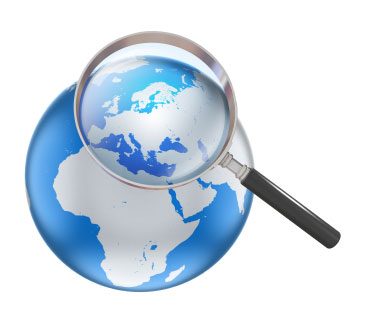Shortly, nothing. Turkey has lots of debts and structural problems that halts money flow into country. Thus, results with Turkish Lira hiking during 2018. Turks (and I am one of them) do not look beyond 1 year or 3 year ahead projections. Any projection beyond 10 years named to be time wasting or not necessary if not stupid. However, that is what Turkey needs now. And what I mean now is “right now”.
The Trans-Pacific Partnership (TPP), also called the Trans-Pacific Partnership Agreement is an agreement between Australia, Brunei, Canada, Chile, Japan, Malaysia, Mexico, New Zealand, Peru, Singapore, Vietnam, and the United States. Although President Trump threatens to withdraw from the agreement, there have been signs that US Congress would push President Trump to sign the agreement and put it into effect. The Trans-Pacific Partnership (TPP) was a secretive, multinational trade agreement that threatened to extend restrictive intellectual property (IP) laws across the globe and rewrite international rules on its enforcement. It is estimated to add 0.5% GDP other than baseline estimated before 2030. But the real gain would halt increasing Chinese influence in the region. It is obvious that withdrawal might bring the US dollar back to US but it would definitely cost a “global leadership” title especially within Pacific region shortly if US would not join into the board.
EU or European Union. Despite the fact that UK leaves the Union, it is prosperity and gather around set of rules and economies. It is still projected to be one of the top locations during 2030 in terms of prosperity. Union ensures the employees rules and set of rules that design to solve the economic disagreements between states and/or multilateral companies.
NAFTA signed by US, Canada and Mexico to form an economic union. The name will be changed to USMCA (United States-Mexico-Canada Agreement) after the US has successfully renegotiated the terms by 30 September 2018. The mutual benefits are in agricultural, environment, transportation infrastructure.
The Transatlantic Trade and Investment Partnership (TTIP) is a proposed trade agreement between the European Union and the United States, with the aim of promoting trade and multilateral economic growth. According to Karel de Gucht, European Commissioner for Trade between 2010 and 2014, the TTIP is the largest bilateral trade initiative ever negotiated, not only because it involves the two largest economies in the world but also "because of its potential global reach in setting an example for future partners and agreements".
Negotiations were halted by President Donald Trump who then initiated a trade conflict with the EU. Trump and the EU declared a truce of sorts in July 2018, resuming talks that appeared similar to TTIP. The European Commission says that the TTIP would boost the EU's economy by €120 billion, the US economy by €90 billion and the rest of the world by €100 billion. According to Anu Bradford, law professor at Columbia Law School, and Thomas J. Bollyky of the Council on Foreign Relations, TTIP aims to "liberalise one-third of global trade" and could create millions of new jobs. A Guardian article by Dean Baker of the US thinktank Center for Economic and Policy Research argued that the economic benefits per household would be relatively small. According to a European Parliament report, impacts on labour conditions range from job gains to job losses, depending on economic model and assumptions used for predictions.
Despite some argue that globalization dies, actually it transforms into new era. I call it “regional globalization”. Still the intension is same decreasing the trade barriers, increase the economic activities ensure stability. In globalization, this was intended to all states regardless their economic status, needs and limitations. However, in this structure, states have the ability to choose their partners which would boost their economies mutually. So, states which cannot contribute with any standards are left outside.
In this regard, Turkey becomes aliened from regional unions. There is only one serious application, EU membership, which cannot take place shortly not only Turkey’s errors but also EU errors, too. There are great mistrust Turkey has against EU and to most extent Turkey has a point. But on the other hand, Turkey has failed to comply with economic and structural reforms which EU becomes hesitated to consider Turkeys’ membership.
Leaving EU option put, there is no viable option with Turkic States to make a union due to economic and structural differences. There is no option to make one with Arabs due to not only historical problems but also economic similarities. There are no “trade-off” opportunities between Arabic States and Turkey. Turkey does not produce advance technology that Arab Nations require and we do not only require energy but cannot neglect the charm of cheap energy.
That leaves Turkey in an awkward position in 10 to 20 years from now on. A nation within biggest 20 global economies, a country with a high young population, its education system (compared within region) is highly qualified. But it does not have major multilateral agreements that benefit the economy. Not today and not within 20 years.
The current economic crisis is one of many crises that would repeat itself once Turkey remains in similar political and economic position. Turkey has no effective National Security Agenda that would unite trade and security in one basket. Unless Turkey establishes a strong economic tie with regional and global actors, it is imminent that Turkey will lose strength in longer term.


